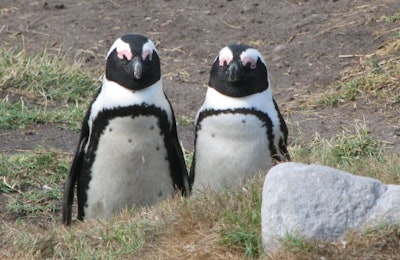
While no new outbreaks of highly pathogenic avian influenza (HPAI) have been reported in domestic poultry over the past week, viruses have been detected in the wild bird populations in India and Namibia.
Over the last week, the agriculture ministry of Namibia has reported to the World Organisation for Animal Health (OIE) that the H5N8 subtype of the HPAI virus group has been detected in penguins at two locations in the southern state of Karas. Other wild birds in the area have been tested, but only the penguins were affected.
This is the first time the virus has been confirmed in the southwestern African country.
Local media in India are reporting another outbreak of mass mortality among wild birds due to HPAI. An unspecified number of crows have been found dead in the Gomia district of Jharkhand, reported The Telegraph in recent days. The H5N1 subtype of the HPAI virus family has been detected in the dead birds by the National Institute of High Security Animal Diseases.
No signs of the disease have been reported in poultry so far but animal health officials are on alert in Gomia and surrounding districts.
Jharkhand is in eastern India, and borders both Bihar and Odisha states, where outbreaks of HPAI linked to the H5N1 virus have been reported in recent weeks.
In Kuwait, local media reports of HPAI at the Al Rai pet bird market have been confirmed by the Public Authority for Agriculture Affairs to the OIE.
After three birds that died tested positive for the H5N8 HPAI virus variant, around 2,000 others were destroyed, and the market was closed for disinfection. There are no poultry farms within 10 kilometers of the market, but surveillance has been intensified.
Following confirmation of HPAI at the market, the United Arab Emirates (UAE) banned the import of poultry products from Kuwait, reports Gulf Business. The ban covers meat, eggs and waste that have not been heat-treated.
It is now more than one year since the last human case of avian influenza A (H7N9) in the world, according to Hong Kong’s Centre for Health Protection. The most recent case involving the H5N6 virus variant was in November last year, and there were no patients reported with the H5N1 subtype at all in 2018.
















